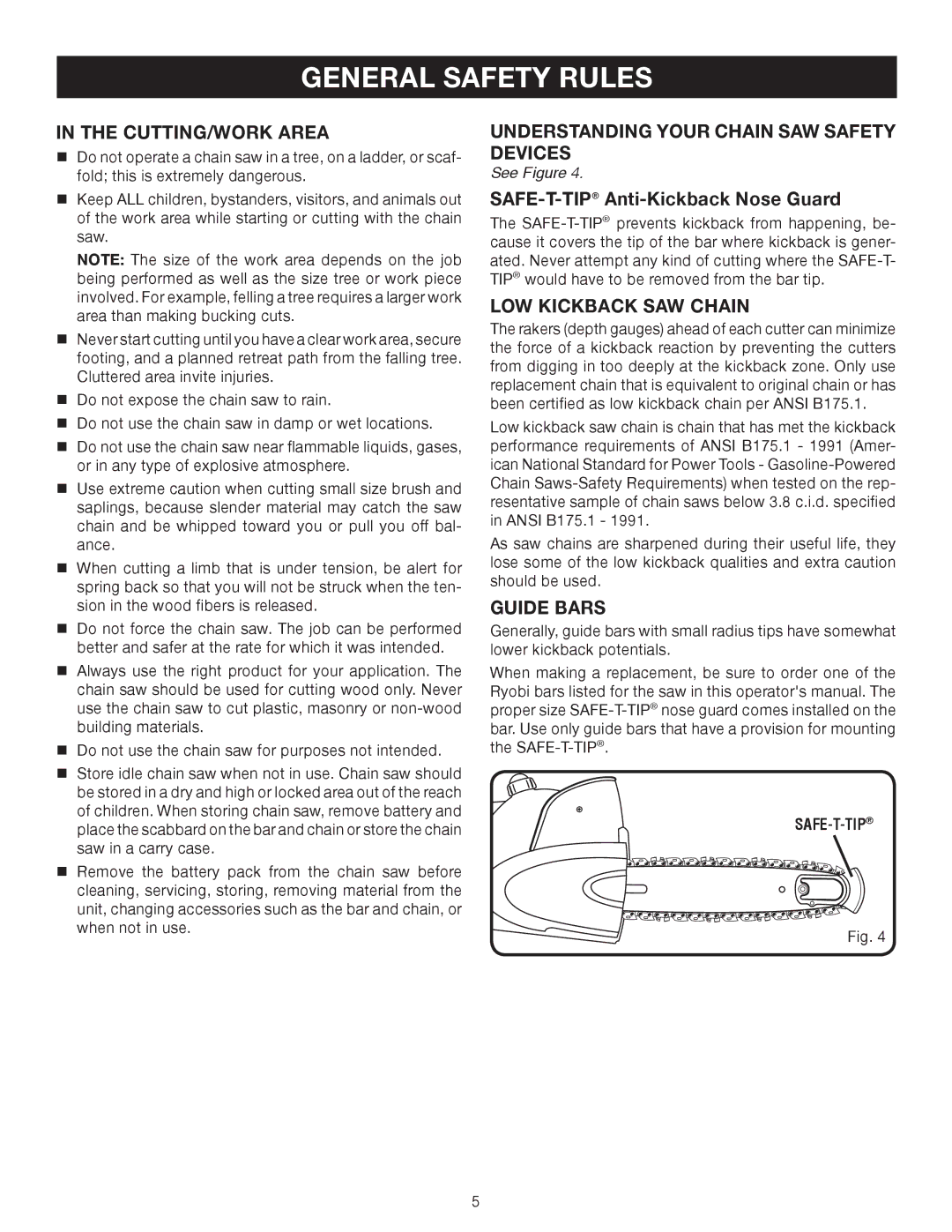P540 specifications
The Ryobi Outdoor P540 is a powerful and versatile cordless leaf blower designed to make yard maintenance more efficient and enjoyable. Known for its reliability and user-friendly features, the P540 is an essential tool for anyone looking to keep their outdoor spaces neat and tidy.One of the standout features of the Ryobi P540 is its impressive runtime, thanks to the integrated 40V lithium-ion battery. This battery provides ample power to clear leaves, debris, and grass clippings from driveways, sidewalks, and gardens without the hassle of dragging around a power cord. Users can expect longer run times, which means less frequent recharging and more time spent getting the job done.
The P540 boasts a lightweight design, making it easy to maneuver around corners, under bushes, and in hard-to-reach areas. Its ergonomic handle provides a comfortable grip, reducing fatigue during extended use. The blower also features a variable speed control, allowing users to adjust the airflow to suit their needs, whether they are gently clearing grass clippings or blasting away heavy debris.
Another significant technology incorporated into the Ryobi P540 is its Turbo Boost feature. This feature enables a temporary increase in power, allowing users to handle more challenging tasks with ease. When extra power is needed, simply activate the Turbo Boost to unleash a concentrated burst of airflow for efficient debris removal.
The blower’s design includes a streamlined nozzle which enhances airflow efficiency, directing air precisely where it is needed. This design results in a more effective blowing pattern, ensuring that no debris is left behind. Additionally, the unit is designed for easy storage, with a compact design allowing it to fit neatly in sheds or garages without taking up too much space.
Durability is another key characteristic of the Ryobi P540. Built with high-quality materials, this blower is designed to withstand the rigors of outdoor use while providing consistent performance. With its combination of power, efficiency, and convenience, the Ryobi Outdoor P540 is an excellent choice for homeowners and garden enthusiasts alike. Whether for routine maintenance or tackling seasonal clean-up, this cordless leaf blower offers exceptional performance that makes outdoor chores less of a burden and more of a breeze.

